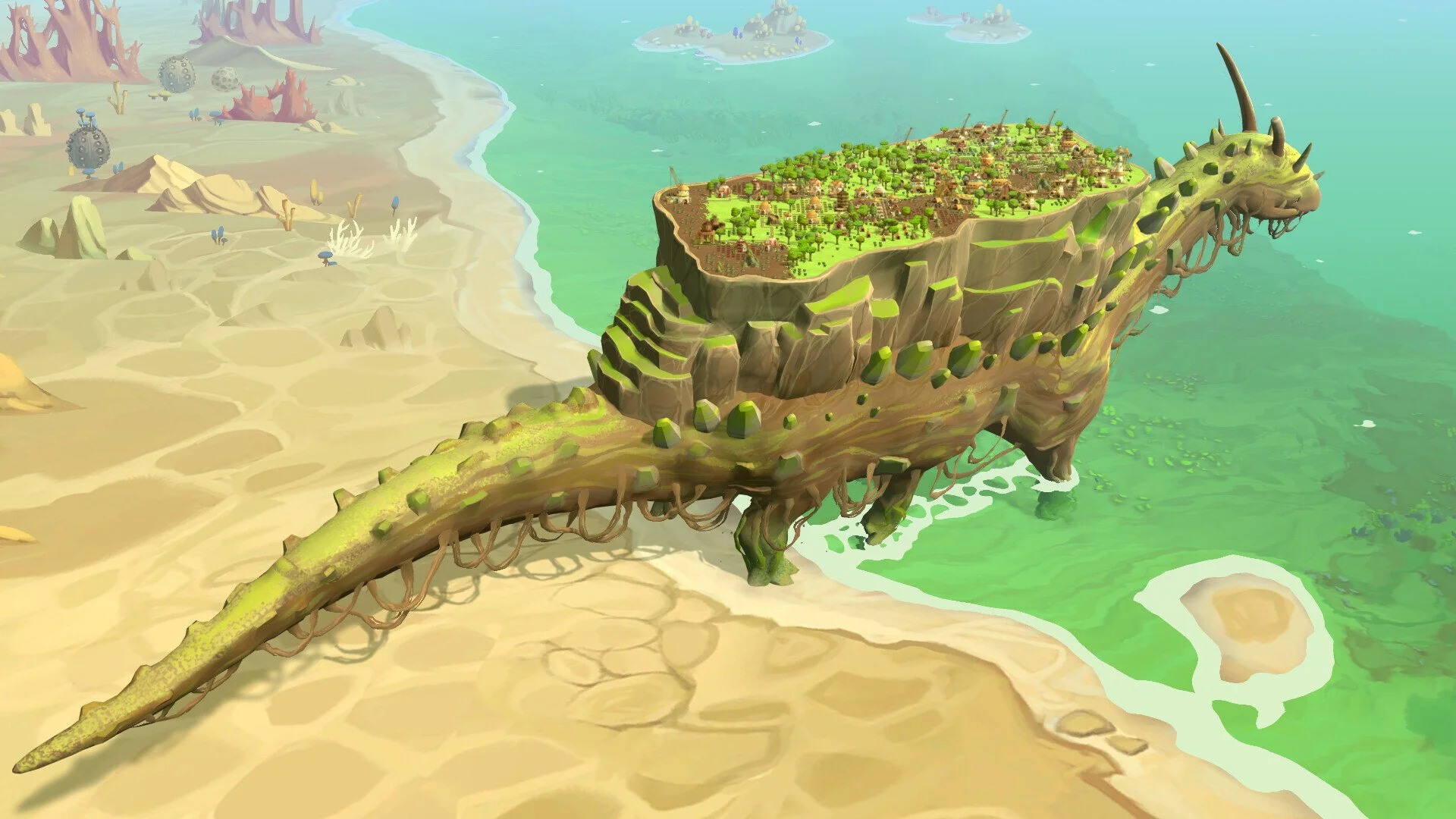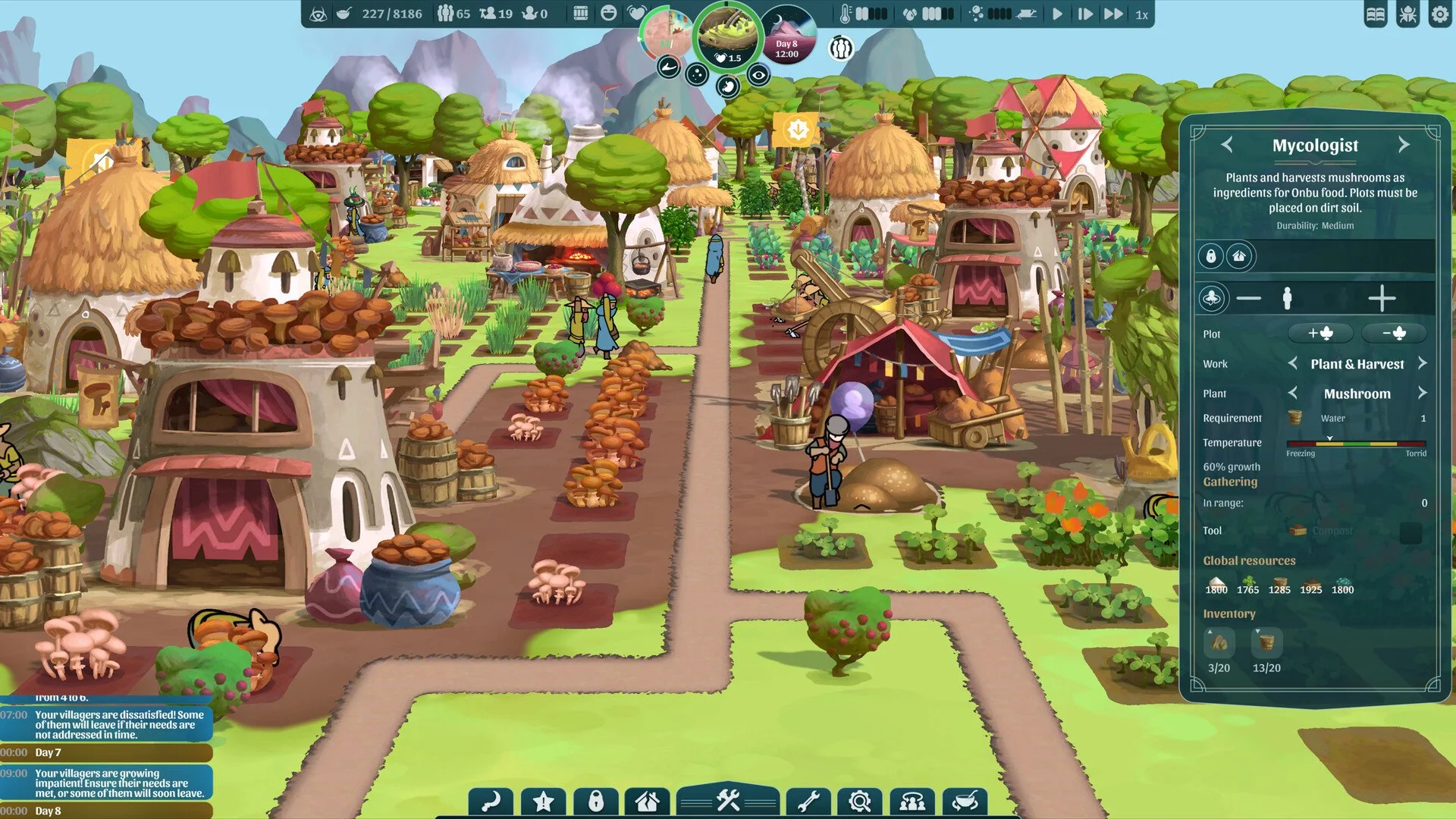THE WANDERING VILLAGE REVIEW: I BUILT A UTOPIA ON THE BACK OF A GOD AND I FEEL TERRIBLE ABOUT IT
In a genre full of sterile grids and predictable challenges, The Wandering Village comes lumbering over the horizon with a concept so brilliant and weird it's impossible to ignore. You're not just building a city; you're building a city on the back of a colossal, six-legged, dinosaur-dog-god named Onbu. Your job is to keep both your whiny villagers and your giant, living island alive in a world that's actively trying to poison you both. It's as stressful and beautiful as it sounds.
A Ghibli Movie You Can Actually Control
The first thing that hits you is the art style. This game is breathtaking. It's like someone took a Studio Ghibli movie, particularly Nausicaä of the Valley of the Wind, and turned it into an interactive diorama. The hand-drawn art, the fluid animations of Onbu, the vibrant and dangerous biomes you wander through—it's all just stunning. The flute-heavy soundtrack perfectly complements the mood, creating an atmosphere that's somehow both cozy and deeply melancholic. This is one of the most beautiful games I've ever had the pleasure of mismanaging into ruin.
The Symbiotic Relationship (Or, How I Learned to Love My Landlord)
The real genius of this game is Onbu itself. This isn't just a moving landmass; it's a living, breathing creature with its own moods, health, and trust levels. This creates a fascinating and constant moral dilemma. Do you form a symbiotic bond, petting Onbu and feeding it tasty mushrooms to earn its trust so it will obey your commands? Or do you take the parasitic route, drilling into its back for bile, harvesting its blood, and, yes, catapulting your own fucking villagers into its mouth for a quick meal when food is scarce? This dynamic turns every decision into a gut-wrenching strategic choice. I found myself getting ridiculously protective of my big, dumb dino-dog, feeling a pang of genuine guilt every time I had to do something that hurt it for the "greater good" of my village.
The Perpetual Motion Machine of Stress
Unlike most city-builders where you can turtle up and perfect your layout in one spot, here, stagnation is death. Onbu is always walking, carrying you from lush forests to scorching deserts to toxic spore-infested jungles. You are constantly forced to adapt your entire economy on the fly. Your farms that thrived in the forest will wither in the desert. The poison spores will infect your crops and your people, forcing you to build decontaminators and switch to hardier food sources. It's a fantastic system that keeps you on your toes and makes the game feel dynamic and endlessly replayable. It’s never boring, but goddamn, it can be stressful.
A Few Cracks in the Shell
The game isn't perfect. The management UI can feel a bit clunky, especially when a crisis hits and you're frantically trying to figure out which of your little idiots is about to die from spore poisoning. The notifications for critical events could be bolder, as they sometimes get lost in the shuffle of day-to-day operations. And while the village is functional, I found myself wishing for a little more life—more recreational buildings or ways for the villagers to interact beyond just working, eating, and dying. These are small gripes in an otherwise phenomenal package, though.
The Verdict
The Wandering Village is a monumental achievement. It takes the familiar city-builder formula and injects it with a massive dose of heart, creativity, and moral complexity. It's a game about survival, symbiosis, and the difficult choices you have to make to protect the things you care about. It’s beautiful, challenging, and utterly unique. In a sea of bland genre clones, The Wandering Village stands tall—literally, on six massive legs.
Score: 9.0/10 - A beautiful, stressful, and wholly original masterpiece.
We at NLM received a key for this game for free, this however didn't impact our review in any way.

